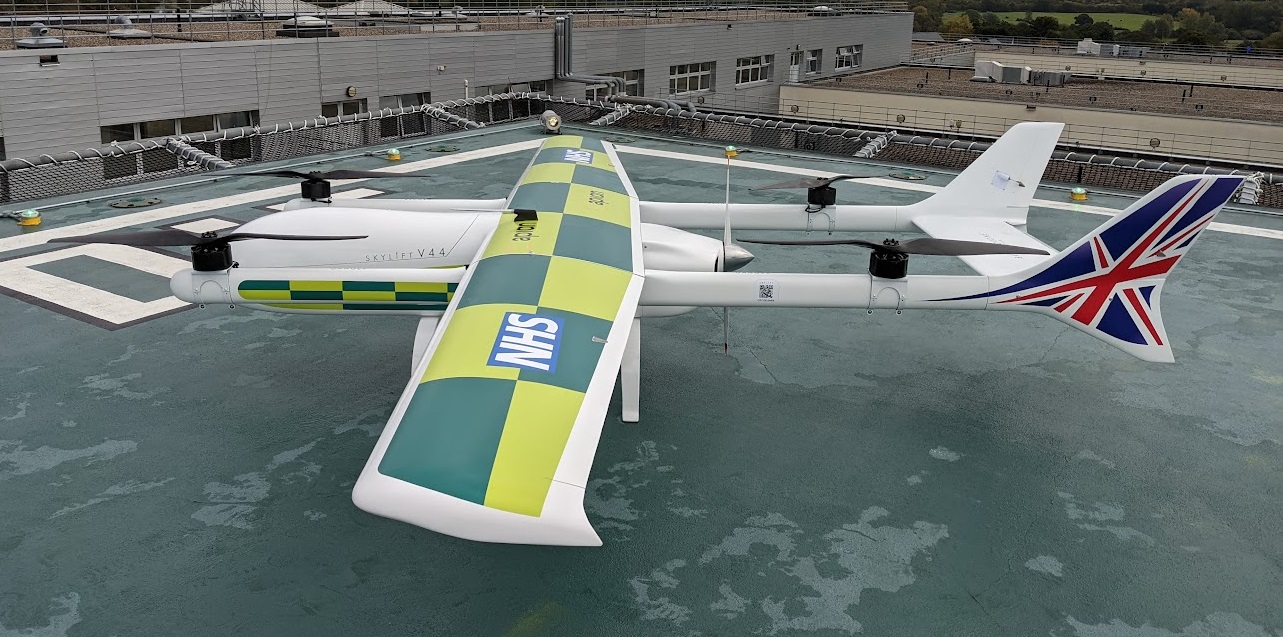Drone deliveries of vital chemotherapy to the Isle of Wight
The issue
People with cancer on the Isle of Wight are dependent on mainland providers for an ever-expanding range of chemotherapy.
Currently, patients who live on the Island have their chemotherapy treatment drugs delivered by a courier from Portsmouth Hospitals University NHS Trust, where they are manufactured, followed by a ferry or hovercraft to the Island and then onwards by taxi to St Mary’s Hospital in Newport.
In addition to the carbon footprint caused by these modes of transport, the journey can sometimes take up to four hours for the medication to reach the hospital, before taking into account any disruptions or cancellations to transport services, which complicate deliveries and distract staff with additional workload.
Chemotherapy has to be transported under strict temperature-controlled conditions and some treatments have a short shelf life. Furthermore, it is manufactured before the patient has been clinically assessed as able to receive treatment on the day it’s due. This means, in some cases, the patient’s condition can cause the treatment to be delayed and the chemotherapy to be wasted.
The solution
The Isle of Wight NHS Trust, in conjunction with the University of Southampton, Solent Transport and the medical drone company Apian have been exploring the potential benefits to healthcare of transporting urgent clinical items – such as chemotherapy – over the Solent using un-crewed aerial vehicles (UAVs or drones).
The programme follows trials which started in 2020, where the first ‘beyond-visual-line-of-sight’ flight of a fixed-wing drone was made between Lee-on-Solent Airfield and Binstead Airfield on the Island.
Subsequently, trials using redundant chemotherapy medicine were undertaken using a vertical take-off-and-landing (VTOL) drone to understand the potential effects of vibration and temperature on the treatments during the different phases of flight. This led to permission being granted to fly live treatments.
The UAVs used for the chemotherapy trials were electric, VTOL aircraft weighing 85kg, with a wingspan of 5m capable of carrying up to 20kg of payload. They were based at the British Army’s Baker Barracks on Thorney Island and flown by former RAF, Royal Navy and airline pilots trained by Flyby Technology.
The Civil Aviation Authority granted permission for the UAVs to fly in segregated airspace between Baker Barracks on Thorney Island and on to St Mary’s Hospital’s helipad on the Isle of Wight.
The impact
This revolutionary way of transporting life-saving chemotherapy drugs reduces a four-hour journey time – by road and sea – to a 30-minute flight.
It helps minimise wastage and treatment delays, while also saving staff time that can be used for direct patient care instead.
A point-to-point drone service is less likely to face interruptions and disruptions from handovers across different modes of transport and can help deliver a more efficient service for patients on the Island.
Each drone delivery can replace at least two car journeys and one hovercraft or ferry journey per delivery – saving carbon emissions and contributing to improving air quality for patients and the community.
What’s next?
Transporting medical cargoes by drones allows lifesaving treatments to be picked up and dropped off for patients in a more responsive way.
In further trials planned for 2023 and 2024, chemotherapy will be flown directly from the pharmacy at Queen Alexandra Hospital in Portsmouth to St Mary’s Hospital, where staff will collect it before distributing it to hospital teams and patients.
To enable this to happen, alongside additional applications such as pathology specimen transportation and other urgent NHS supplies, there is a need to connect multiple hospital sites across the Solent region. This can only be truly realised when a mechanism for allowing crewed and un-crewed aircraft to operate in shared airspace is agreed.
Currently, Solent Transport, as part of their Future Transport Zones Drones project are looking to develop UAV flight corridors across the Solent to allow easier access for the drones to service the NHS sites and allow trials to continue through 2023 and 2024.
For more information, please visit the Isle of Wight NHS Trust’s website.

